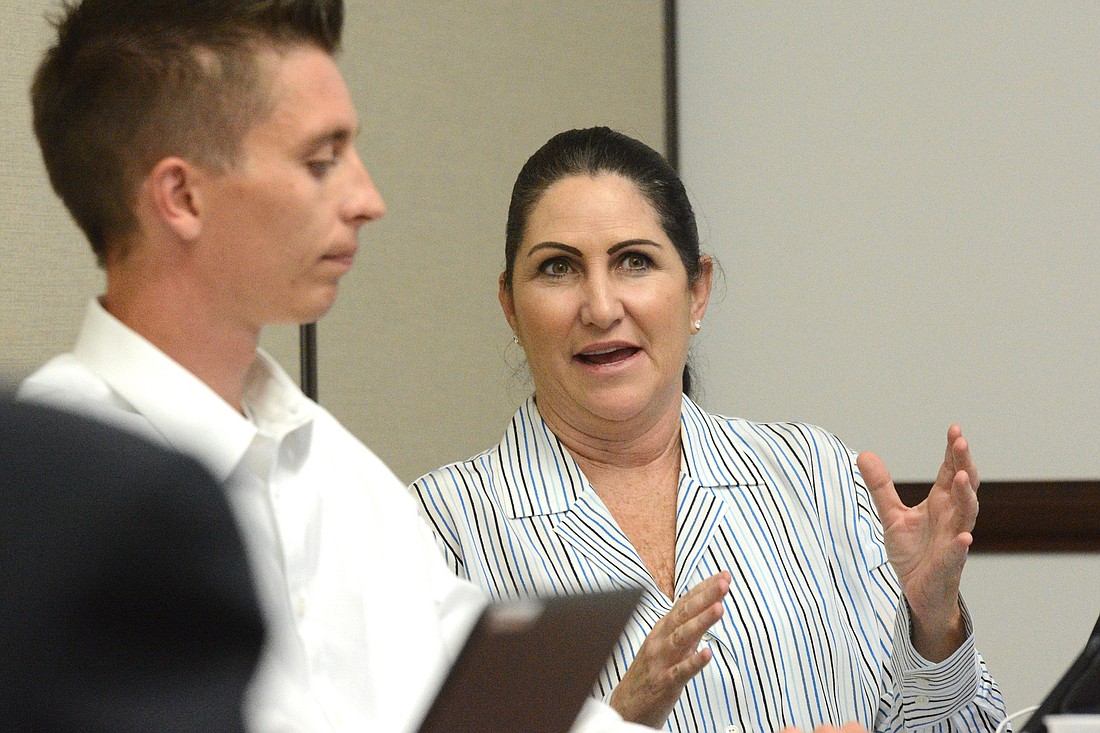- December 13, 2025

What's the best way to bring more economic activity to Palm Coast? Should the city target small businesses that might want to move here, or go after the large ones? And how should it guide the development of Town Center?
A study commissioned by the city and conducted by Frontier Service Design — titled "Strategic Recommendations for The City of Palm Coast Innovation and Economic Growth Initiative" — tried to answer those questions, and Frontier Service Design consultant Bob Cooper presented the findings to the City Council during the council's Aug. 14 workshop.
The project looked at two objectives: attracting new business to the city, and developing Town Center.
To attract new business, Cooper suggested the city target new small-to-medium sized businesses (with up to 999 employees), "work from anywhere" professionals and freelance professionals who own their own business or consulting firm.
Palm Coast officials have spoken repeatedly of developing the city as a tech hub, and there are plenty of highly paid programmers living eight-to-a-house in Silicon Valley who are looking for places where they'd have a higher quality of life, Cooper said.
The ideal small-to medium-sized businesses for Palm Coast, Cooper said, would be companies such as Coastal Cloud or ACI, which employe "knowledge workers."
The Frontier Service Design report suggested the city "focus on founders/owners of small businesses in states in the northeast and upper midwest United States ... during the colder months (November to March), because weather is one of the key reasons people migrate from the northern states to the southern states."
The city, Cooper said, could also employ marketing and branding strategies such a creating an internet "microsite" to lure businesses, adding a chatbot to its current website, hiring a PR firm and producing marketing videos targeting new businesses and work-from-home professionals, using direct mailings, and placing ads in publications. The Frontier Service Design group laid out a 12-month budget of $144,580 for that work.
To develop Town Center, Cooper said, the city could do four things: Bring people to Town Center through attractions, bring people to Town Center through events, establish Town Center as a hub for innovation, and find a secure master developer.
"It’s not just a matter of creating a space, per se, but it’s also a matter of creating some kind of focus," Cooper said. "I believe there's an opportunity for the city to take a more active role to make sure that you’ve got, really, a vision for Town Center ... as opposed to parcel by parcel."
The Frontier Service Design report's top recommendation for building out Town Center through attractions was to add a "high end, full-service recreation center ... that would include workout facilities, meeting rooms, pool(s), a climbing wall, etc." That, according to the report, "would service as a strong 'anchor' for Town Center development and be an attractive amenity for both future residents and employers."
Other, less expensive options, Cooper said, would be a skate park, splash park or a climbing park/ropes course. Still other possibilities mentioned in the report included: a petting zoo, an observation tower, a fixed balloon ride, a water park, a regional food court/food marketplace, an event venue (for weddings, etc.), iconic public art, a trampoline park, a big slide or a nature discovery center.
To attract people to Town Center through events, Frontier Service Design's report suggested creating a "unique fitness/intelligence competition, i.e. 'Brawn & Brains' that combines a Tough Mudder/Warrior Dash with 'Jeopordy' or 'Survivor' type skills challenges. Uniquely position it as the 'first one ever' and leverage national press coverage."
Or, Cooper said, the city could consider creating: a Palm Coast marathon, a Palm Coast bike race using the city's bike path network, a music festival, a tennis tournament, a TED talk/speaker series, a cheerleading competition, medical conferences, or “smart city” conferences that leverage Palm Coast’s experience.
To make Town Center a hub for innovation, Cooper said, "Really, we need a place here in the city … to bootstrap that space into a shared office/meeting/maker facility which is self-funding [and] also becomes a central focal point for local Palm Coast investors and technologists. ...There’s really a a lot of pent up potential."
But the "lynchpin," the Frontier Service Design report stated, of making Town Center successful "is finding and partnering with a proven, successful, well-funded, visionary developer who has 'been there, done that' when it comes to large-scale, multi-faceted projects like this."
Cooper suggested the city check case studies compiled by the Urban Land Institute.
"In each case, you will find that there was a master developer involved as well as architects, designers and landscape architects," the report states. "This reinforces the idea that for Palm Coast’s Town Center concept to be fully realized, it requires a visionary developer who sees the project as a whole (not parcels) and is in it for the long haul."
Palm Coast Mayor Milissa Holland said the presentation aligned well with the council's discussions about the city's future and "really allowed us to see the bigger picture. ... but also how we position ourselves from a marketing standpoint, and how we really try to capture and be who we are but do it really well, so not be the Silicon Valley, but be Palm Coast, and own that."